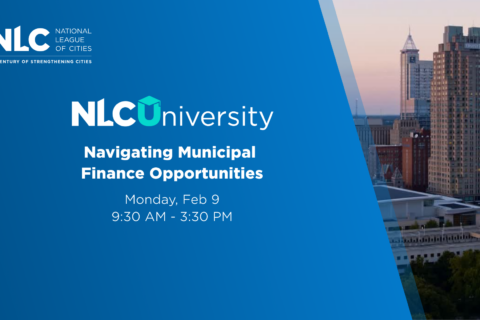Authored by Entrepreneurship and Economic Development Intern Kinga Turoczi and edited by Safaya Fawzi
Community Development Financial Institutions (CDFIs) are mission-driven establishments with the main goal to support underserved communities in economic development and financial opportunity. This consists of financial assistance to both individuals and businesses through community banks, credit unions, loan funds and venture capital funds.
The Riegle Community Development and Regulatory Improvement Act of 1994 established the CDFI Fund and official CDFI Certification through the Department of Treasury. Certified CDFIs are recognized for their prioritization of promoting community development, specifically providing “financial services in low-income communities and to people who lack access to financing.” Certified CDFIs are eligible to apply for programs and awards through the CDFI Fund.
While regulated on the federal level, these institutions bridge the gap between public and private even at the local level.
As financial institutions embedded in the local economy, CDFIs work directly with local policymakers to better serve their communities as a financial advocate on the local level.
What Do CDFIs Do for Communities and Constituents?
Due to their mission-driven focus, they provide irreplaceable tools and support for economic development by creating sustainable economic ecosystems and fostering entrepreneurship. CDFIs offer a variety of technical assistance and training in addition to financial services and capital. Whether it be building capacity through strategic partnerships, improving financial literacy through workshops or offering business development support, they work to support communities from the ground up.
CDFIs have the capacity to offer support directly to constituents and back community-based initiatives, such as affordable housing and workforce development, that can improve every individual’s quality of life.
When and Why Should You Work with CDFIs?
CDFIs can often take risks that conventional community lenders and city officials cannot. Where officials tend to be bound by protocol and processes, they have the freedom to support, invest and develop. Conventional lenders also cannot take the risks that CDFIs take. Because of their deep knowledge of the communities’ needs, CDFIs can identify opportunities quicker and assess risks beyond traditional credit scores. These holistic assessments and investments funnel directly back to benefit the community they serve.
CDFIs offer more flexible loan terms, including higher loan-to-value ratios and deferred repayment periods. Especially in times of economic uncertainty, they tend to continue to steadily lend and provide support, despite traditional financial institutions not doing so. At the start of the pandemic, while most banks tightened lending standards, CDFIs were able to continue providing economic opportunity and community support through the CDFI Fund’s Rapid Response Program.
Cities can work directly with CDFIs to support their constituents in fostering small business growth and retention by ensuring their residents are CDFI-ready. This may take shape in the form of offering technical assistance workshops, mentorship or cohort-based programs for businesses to guarantee they have the market knowledge and financial literacy to sustain their growth. Policymakers can help both their constituents and CDFIs alike by preparing businesses for CDFI assistance while maintaining clear communications on their progress with CDFIs.
What Does Collaboration with a CDFI Look Like?
CDFI Friendly Fort Worth partnered with the City of Fort Worth to increase CDFI funding in the region by acting as a mediator between financers and the community. In just the first two years, annual available capital in the city went from $10,000 to $24 million. CDFI Friendly Fort Worth Director Glenn S. Forbes and Fort Worth’s Chief Equity Officer Christina Brooks attribute this success to the public and private entities working in tandem with one another. While the city offers technical assistance to business owners through resource toolkits and workshops on financial education, CDFI Friendly Fort Worth connects collaboration-ready businesses to the capital access networks. Brooks emphasizes the importance of open communication between chambers and CDFIs in tracking business readiness metrics and sustaining business support even after collaboration.
“A major part of how cities can assist on the policy side is developing partnerships and programs with organizations that provide technical assistance for small businesses, especially on the financial readiness and capital readiness side.”
– City of Fort Worth Chief Equity Officer Christina Brooks
Learn More about CDFIs and Take Action
If you’re interested in further ecosystem-building strategies, including supporting CDFIs, explore NLC’s work on the City Inclusive Entrepreneurship Program, or learn how cities can improve equitable access to banking for their communities, especially in the wake of recent changes to CDFI funding mechanisms.
Connect on LinkedIn
Join the NLC Inclusive Entrepreneurship & Economic Development Group on LinkedIn to connect with other city leaders.









